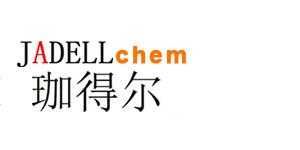Recombinant Human MIP-3/CCL23 (CHO-expressed) 是一种 CC 趋化因子,能够通过 CCR1 诱导内皮细胞的迁移和管系形成。
Synonyms
rHuMIP-3/CCL23; C-C motif chemokine 23; MPIF-1; SCYA23 ; 重组人 MIP-3/CCL23 (CHO 细胞表达)
Species
HumanSource
CHO Accession
P55773 Gene ID
6368 Molecular Weight
Approximately 12 kDa AA Sequence
RVTKDAETEF MMSKLPLENP VLLDRFHATS ADCCISYTPR SIPCSLLESY FETNSECSKP GVIFLTKKGR RFCANPSDKQ VQVCVRMLKL DTRIKTRKN Biological Activity
The ED50 is <2 μg/mL as measured by CHO-K1/Gα15/hCCR1 cells (human Gα15 and human CCR1 stably expressed in CHO-K1 cells). Appearance
Lyophilized powder. Formulation
Lyophilized after extensive dialysis against PBS. Endotoxin Level
<0.2 EU/μg, determined by LAL method. Reconstitution
Reconstitute the lyophilized recombinant Human MIP-3/CCL23 (CHO-expressed) (rHuMIP-3/CCL23) to 100 μg/mL using ddH2O or PBS. Storage & Stability
Lyophilized recombinant Human MIP-3/CCL23 (CHO-expressed) (rHuMIP-3/CCL23) is stored at -20°C. After reconstitution, it is stable at 4°C for 1 week or -20°C for longer. It is recommended to freeze aliquots at -20°C or -80°C for extended storage. Shipping
Room temperature in continental US; may vary elsewhere. Background
Human CCL23 (also known as CKb8, MPIF-1, or MIP-3) is a CC chemokine, which induces endothelial cell migration and tube formation via CCR1. CCL23 also exhibits chemotactic activity on monocytes and dendritic cells, and inhibits the formation of bone marrow-derived colony-forming cells[1]. |



